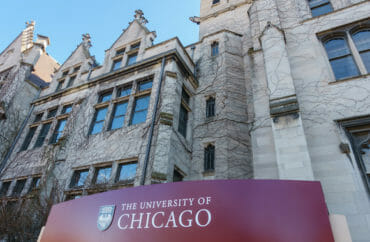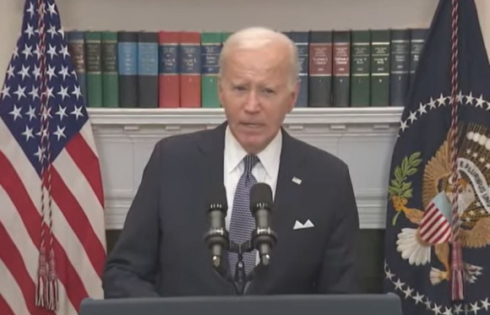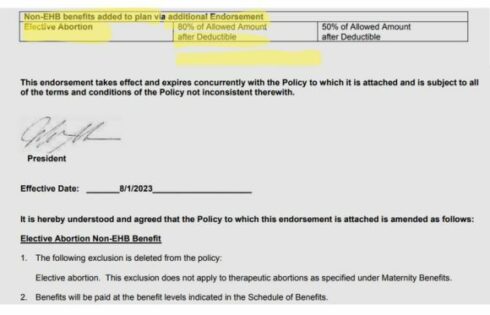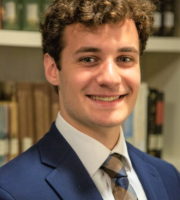
The University of Chicago has come under heavy criticism for its recent announcement that it will only accept graduate student applicants to its English Department who are interested in Black Studies for the 2020-21 school year.
“English as a discipline has a long history of providing aesthetic rationalizations for colonization, exploitation, extraction, and anti-Blackness,” according to a statement from faculty explaining the decision.
Observers and watchdogs have called the commitment everything from idiotic to a political litmus test.
“Education requires exposure to a diversity of viewpoints with the freedom to study, explore, and reach one’s own conclusions,” Samantha Harris, a free speech and due process rights attorney, told The College Fix via email this week.
“By setting forth a political agenda and only accepting applications from people who agree with that agenda, the department is choosing activism over education,” she said.
Harris is among a chorus of people who argued on social media and elsewhere after the university announced the decision that it is ill-conceived.
But in an email to The College Fix, University of Chicago spokesperson Gerald McSwiggan said it’s been blown out of proportion.
“Like many graduate programs around the country, the English Department at the University of Chicago can accept a limited number of PhD graduate students in the 2020-21 application season due to the COVID-19 pandemic and limited employment opportunities for English PhDs,” McSwiggan said.
“Currently, there are 77 PhD students studying a wide variety of disciplines within the English Department, and the department is admitting 5 additional PhD students for 2021. The English department faculty saw a need for additional scholarship in Black Studies, and decided to focus doctoral admissions this year on prospective PhD students with an interest in working in and with Black Studies. As with other departments in the University, the department’s faculty will decide which areas of scholarship they wish to focus on for PhD admissions in future years.”
The decision was announced in a recent faculty statement from the English Department.
“We understand Black studies to be a capacious intellectual project that spans a variety of methodological approaches, fields, geographical areas, languages and time periods,” according to the statement.
“Our discipline is responsible for developing hierarchies of cultural production that have contributed directly to social and systemic determinations of whose lives matter and why.”
“And while inroads have been made in terms of acknowledging the centrality of both individual literary works and collective histories of racialized and colonized people, there is still much to do as a discipline and as a department to build a more inclusive and equitable field for describing, studying, and teaching the relationship between aesthetics, representation, inequality, and power.”
The statement does not mention many of the specifics as to how this new restriction will be implemented at the school.
Critics took to Twitter and elsewhere to display their frustration over the decision.
“This is all too idiotic,” said black human rights activist Ayaan Hirsi Ali. “Most of us don’t know whether to laugh or cry. By the logic of their creed, wouldn’t English be the oppressor’s language?”
I just tweeted an article about the University of Chicago English Department. This is all too idiotic. Most of us don't know whether to laugh or cry. By the logic of their creed, wouldn't English be the oppressor's language?
— Ayaan Hirsi Ali (@Ayaan) September 14, 2020
“I am obviously interested in black literature. But being strong armed into studying it??” asked cultural critic Thomas Chatterton Williams.
I am obviously interested in black literature. But being strong armed into studying it??
The English department of the University of Chicago has just decided that this year it will only be accepting graduate students committed to working in Black Studies. pic.twitter.com/nQjwE1dcMP
— Thomas Chatterton Williams (@thomaschattwill) September 14, 2020
Harris, a campus due process and Title IX violations attorney, told The College Fix her “concern with the announcement is that it effectively imposes a political litmus test on applicants to the graduate program.”
“It sets forth the English department’s very specific views on contested political issues and effectively says ‘those who disagree need not apply,’” she said.
“[The university] may certainly have the right to do that, but it’s a sad commentary on the state of American higher education when a major department at one of the nation’s top universities explicitly chooses to embrace a political agenda to the point of excluding students who disagree.”
Although higher education institutions around the nation have begun adopting new diversity commitments, this is the first time a major university has announced restrictions on form of study in the name of diversity.
The College Fix also reached out to University of Chicago English department chair Maud Ellmann who did not respond to a request for comment, and instead delegated the task to media affairs.
Writing in The Federalist, University of Chicago undergraduate Evita Duffy argued that the black studies-only decision from her campus is not surprising from her perspective.
Her column, headlined “Leftist Hostility Makes University Of Chicago’s Intellectual Diversity Pledge A Joke,” detailed the parade of emails she’s received from campus leaders in recent months touting far-left ideology. Duffy, a conservative, also recounted how she was threatened with violence earlier this year for saying socialism is more dangerous than the coronavirus.
“Unfortunately, in practice, the University of Chicago is hardly a bastion of free speech and political tolerance,” Duffy wrote. “It socially and academically rewards groupthink.”
MORE: ‘Dismantling anti-black linguistic racism in Shakespeare’ guide earns support
IMAGE: Shutterstock
Like The College Fix on Facebook / Follow us on Twitter





Please join the conversation about our stories on Facebook, Twitter, Instagram, Reddit, MeWe, Rumble, Gab, Minds and Gettr.